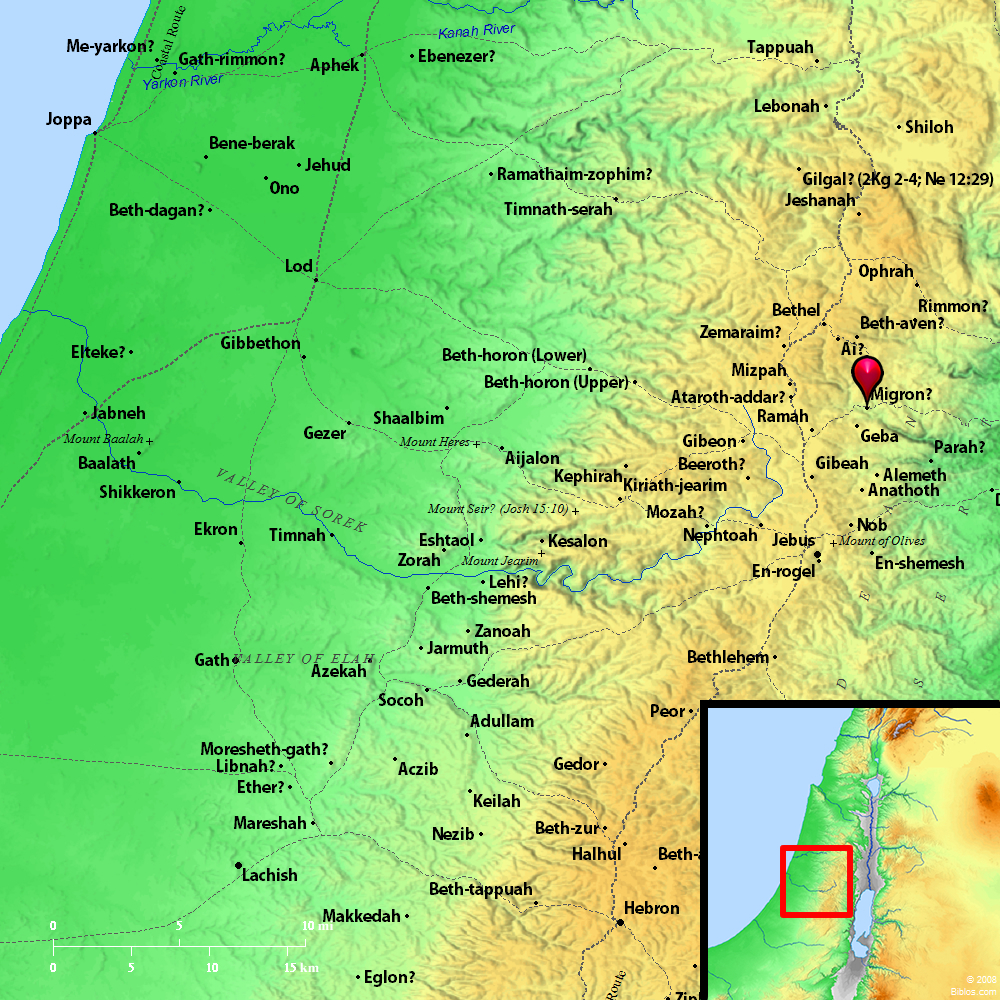Atlas

Migron and surrounding region
Maps Created using Biblemapper 3.0Additional data from OpenBible.info
You are free to use up to 50 Biblos coprighted maps (small or large) for your website or presentation. Please credit Biblos.com.
Occurrences
1 Samuel 14:2 Saul abode in the uttermost part of Gibeah under the pomegranate tree which is in Migron: and the people who were with him were about six hundred men;
Isaiah 10:28 He has come to Aiath. He has passed through Migron. At Michmash he stores his baggage.
Encyclopedia
MICRONmig'-ron (mighron; Magon):
(1) A place in the uttermost part of Geba-which read here instead of Gibeah-marked by a pomegranate tree, where Saul and his 600 men encamped over against the Philistines, who were in Michmash (1 Samuel 14:2). Josephus describes the distress of Saul and his company as they sat on a high hill (bounos hupselos) viewing the widespread desolation wrought by the enemy. There is, however, nothing to guide us as to the exact spot. Many suppose that the text is corrupt; but no emendation suggested yields any satisfactory result. The place was certainly South of Michmash.
(2) (Codex Vaticanus Magedo; Codex Alexandrinus Mageddo): The Migron of Isaiah 10:28 is mentioned between Aiath (Ai) and Michmash. If the places are there named in consecutive order, this Migron must be sought to the North of Michmash. It may with some confidence be located at Makrun, a ruined site to the North of the road leading from Michmash to Ai.
There is nothing extraordinary in two places having the same name pretty close to each other. The two Beth-horons, although distinguished as upper and lower, are a case in point. So also are the two Bethsaidas. There is therefore no need to try to identify the two with one another, as some (e.g. Robertson Smith in Journal of Philology, XIII, 62;) have attempted to do with no success.
W. Ewing
Strong's Hebrew
H4051: Migronan area near Gibeah, also a place North of Michmash




